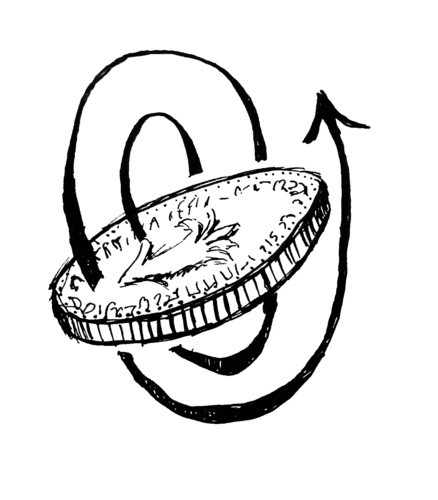Facebook and I
I’ve recently deleted all the content from my Facebook account, but kept the account open. This rambling post is something of an answer to the people who ask me why.
Our history
I first saw mention of TheFacebook on a photocopied piece of A4 paper stuck to a lamp post in St Andrews. This was back in 2005. St Andrews was one of the first universities outside the US that Facebook arrived at - I’ve no idea who put the poster up, or what else it said.
A user only had one photo back then. People mostly posted nonsense on each others’ walls. Facebook was primarily a tool for messing around, and finding people’s phone numbers when one lost one’s phone. Posting ASCII art of snowballs or ugly trucks was as much gaming as got done. [I tried to find images of any of this early stuff and couldn’t. ]
I was never very active on the site, but I did see its potential and showed it to quite a few people well before they could join. I remember people pitching me ideas for clones - one for high schools, another for Bangladesh. (At this time Facebook required a university email address, and you could only view people within your university.)
As an aside - Linkedin has barely added a single meaningful feature between 2005 and today. Facebook has Evolved.
Why it worked
There are a few key reasons why Facebook worked.
-
Real names. Facebook was a closed network within universities. People used their own real names from the outset. There was no need to invent a username, or to know someone else’s username to find them. Sites like Myspace, Bebo and Faceparty all used alex_0161 and the like. Real names made it easy to find people and form meaningful networks. Think about how common it is to log in using an email address nowadays. Facebook is the first site that I remember doing this! - All users could find some friends.
-
Students. By 2005 all students had computers and were online and savvy. Virtually 100% of your student friends would be on Facebook. In the general population though, you’d only find a handful of friends on other networks. Time is another factor. In its early days, Facebook was pure and pointless procrastination. - Large (and therefore valuable) networks formed.
Me and Facebook
###The Vacuum effect I’ve never been a particularly active user - I’m not sure why. For a long time I didn’t have a Facebook account at all. I created one because I felt I was missing out on social events, and the only other people who didn’t have accounts were tinfoil hat wearing oddballs. I didn’t want to be in that bracket. For the past year or so I have posted quite often but I found it quite demoralising to post something that I’ve made or built, only to receive no comment or feedback. I don’t know if that’s a criticism of what I do, my social group, my expectations, or all three. I think the honest truth is that every unliked post might as well have had 150 comments that said “Don’t care.” And one from my mum, obviously.
Conversation killing
This is a big reason why I’m largely off Facebook. I’d see someone that I hadn’t seen for a while:
“I got married.” “Yeah, I saw on Facebook.” Next topic.
I want to describe the deserted beach I was on last week. If you’re interested I might show you a photo on my phone. And I’d love to hear about your trip to Las Vegas, who you went with, and that funny incident in the elevator. But it’s ok… I can wait a few months for it - we don’t need to both immediately pause our lives while you type it and I read it. Then never mention it again.
The good
Facebook at its best is a beautiful photo shared, a problem solved, a party filled, or a personal and heartbreaking message shared and deluged in good wishes and sympathy. For me the signal to noise ratio is too high.
Monetization
I remember a friend telling me early on that Facebook should start charging £5 a year for user accounts to make money. But from the outset Facebook did have a means by which users could pay some money to put a text advert across their university. It wasn’t clear if this was making any money, but Facebook has stuck to this targeted display advertising model ever since. I believe that Facebook advertising is effective, profitable and that this is a sustainable model in the same manner as TV networks. I think Facebook has a much easier task than Twitter or Snapchat.
Facebook’s future
For a time there were no alternatives to Facebook. It was a product of the desktop, which has managed very well to survive the rise of mobile.
But there is a risk that there are now lots of viable alternatives to Facebook. Snapchat, naysayers be damned, thrives precisely because people want to share trifling, fleeting nonsense. I actually think it’ll do Facebook some good for people to share that elsewhere.
Twitter is somewhat faddish at the moment, but it is evolving into the Public Facebook. And I’m not sure, but I think another Private Facebook will launch at some point. Medium is there for long form content.
I don’t think Facebook is going anywhere. I don’t think they are an evil company. I don’t overly worry about their disregard for privacy. Mark Zuckerberg has done an outstanding job, and I don’t see him going anywhere.

